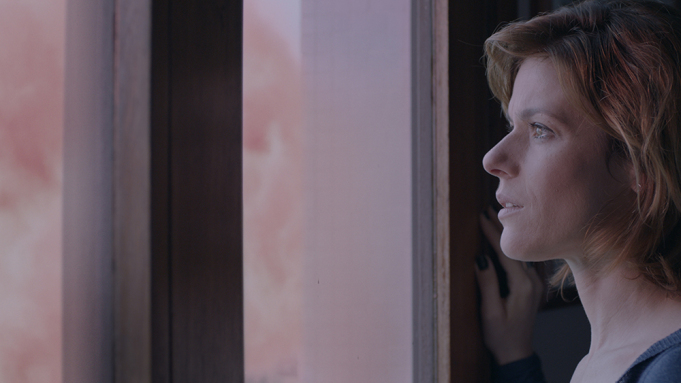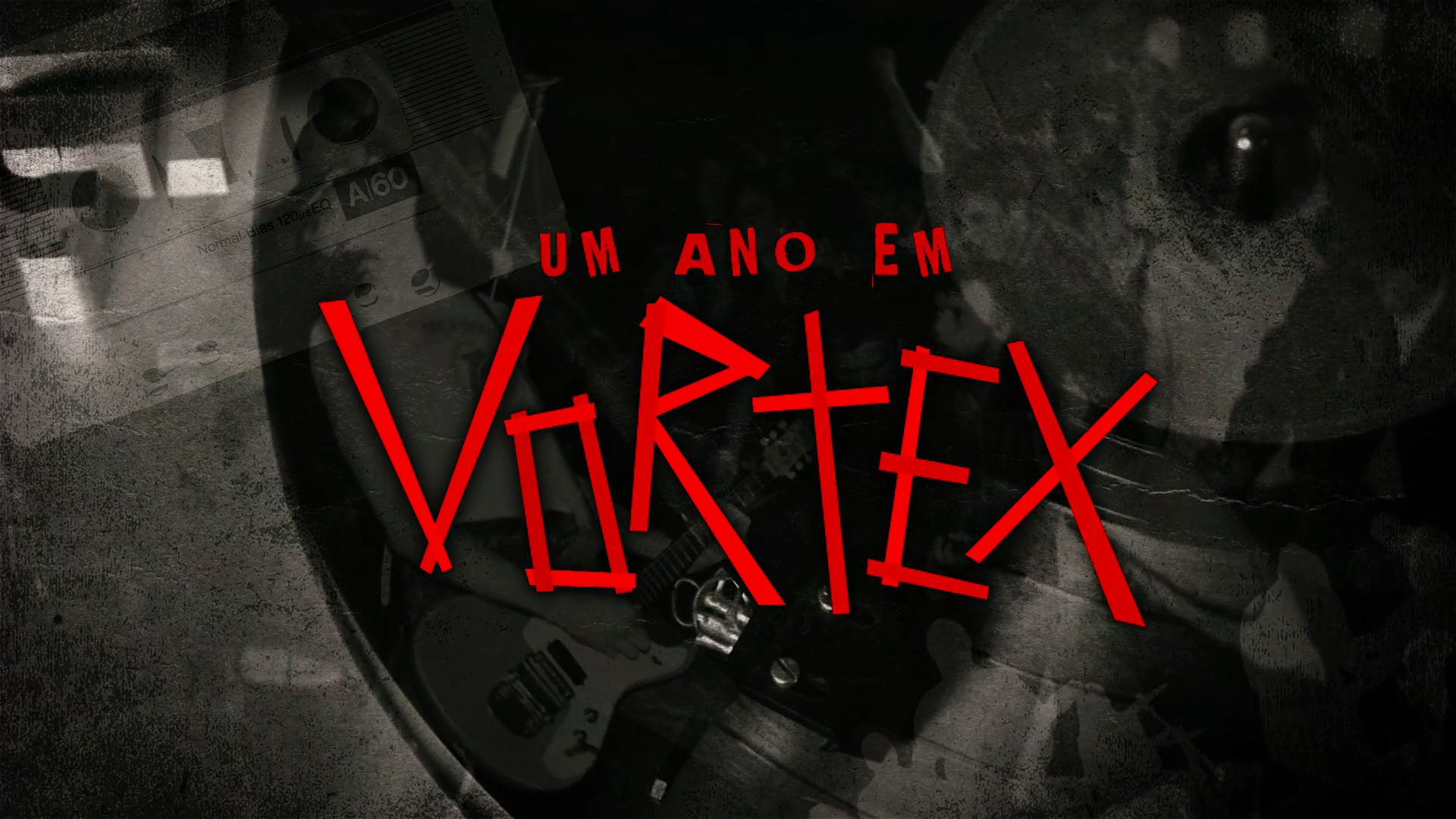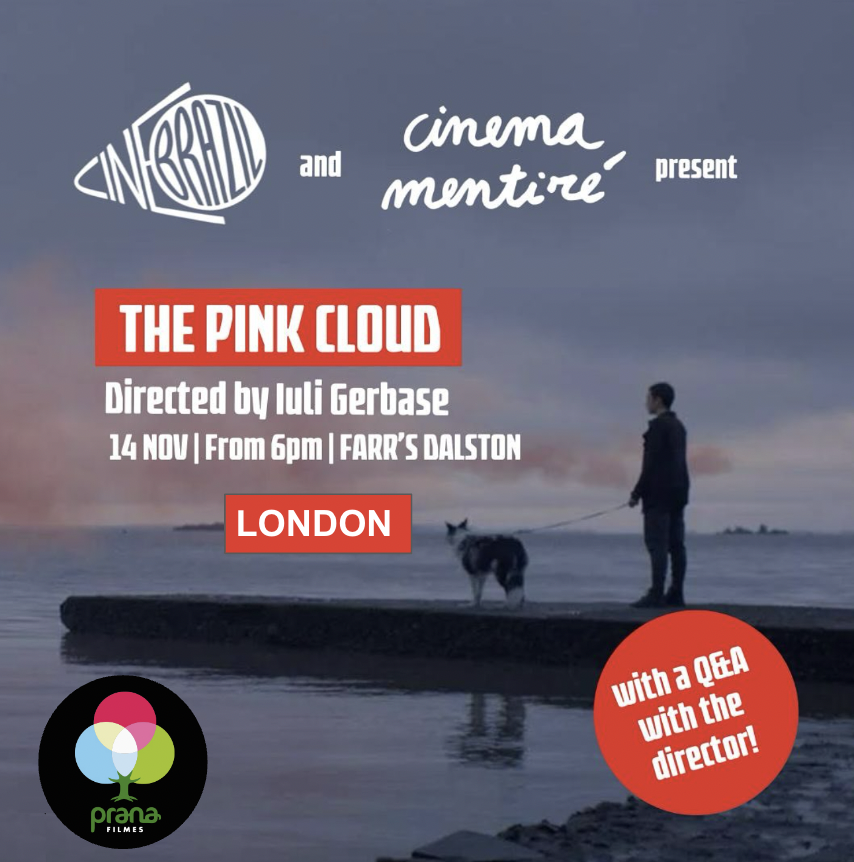

Iuli Gerbase’s refined, accomplished debut announces up front that it was written and shot pre-pandemic, but it’s still thoroughly current.
By Guy Lodge

It’s not often one sees a film arguing against its own topicality, but that’s what happens at the outset of “The Pink Cloud,” a subtly fevered quarantine drama that is so of the moment, you all but wonder how they had time to shoot and cut it just last week. But they didn’t, as an introductory disclaimer flatly clarifies before the opening credits: Brazilian writer-director Iuli Gerbase’s debut feature was written in 2017, filmed in 2019, and “any resemblance to actual events is purely coincidental.”
Well, then. The statement may be there to absolve Gerbase of any cynical opportunism, but it just as effectively credits her with eerily perceptive foresight. For the contained, emotionally taut chamber drama that follows, in which casual acquaintances are forced into isolated coupledom by a long-term public health crisis, is so very 2021 it genuinely hurts: a film that mirrors the mental health swings and troughs of social distancing in ways we couldn’t have felt quite so vividly this time last year. Sure to be a talking point of this year’s world cinema lineup at Sundance — where, with further couldn’t-have-planned-it prescience, it’ll bow not to gathered crowds but huddled home viewers — Gerbase’s thoughtful, precise little film would have marked an impressive enough arrival under normal circumstances. As it is, it might endure as more era-evocative than many of the intentional pandemic dramas to come.
In quiet but disquieting fashion, the film’s opening minutes swiftly lay out a premise that, on the face of it, might be described as lo-fi science fiction, but now seems credible enough. Unanticipated and unexplained, a drifting, marshmallow-pink cloud descends across the globe, its Instagram-sunset aesthetics somewhat undermined by the toxic gas it emits, which kills any human (but not, it seems, animals) within ten seconds of exposure. Gerbase illustrates this effect in slow-creeping, dialogue-free introduction, with only the jangling, discordant instrumentation of Caio Amon’s score — sounding, in the best possible way, like a full orchestra trying to re-create a dial tone — to augur a planet suddenly and drastically out of balance. Across the world, public orders are blared like war sirens: Go inside and shut your windows, right now, or die.
Awkwardly caught out by that mandate are a pair of strangers: website designer Giovana (Renata de Lélis) and chiropractor Yago (Eduardo Mendonça), who hooked up at the former’s apartment the night before, and are in a lazy morning-after haze when the stay-at-home instruction drops. Now required to share a home indefinitely, as the lethal cloud shows no sign of lifting, the two negotiate the kind of relationship that was never in the cards when they first had sex. Cue a new life that seems, by turns, a feat of improvisation, role-play and outright fantasy: DP Bruno Polidoro shoots the apartment’s chic modernist interior in gauzy, peach-to-lilac pastels, as if the cloud has somehow entered the building, suspending its occupants between life, death and dream.
Not even sure they like each other to begin with, Giovana and Yago try things out as platonic roommates, friends with benefits and eventually lovers, never comfortable settling into any of those modes. Early in the lockdown, Giovana jokes that their setup is akin to an arranged marriage: It’s a comparison that seems less amusing as weeks turn to months, and months to years. Is this spacious but somehow airless apartment truly their forever home? And if so, should they set aside their differences to make some kind of joint investment in the future?
Time simultaneously stalls and slips by in Gerbase’s crisp, unfussy screenplay. An idea that might initially seem to be short-film fodder expands and evolves thanks to two thorny, well-drawn characters, and their consistent, divergent human responses to an oh-so-slow apocalypse. Mild-mannered homebody Yago simply doesn’t feel as restricted by the quarantine as the more restlessly sociable Giovana, a psychological impasse their relationship, even in its happiest phases, can’t overcome. Nobody wins in this scenario: Yago’s phlegmatic nature doesn’t make him happier than Giovana, as she spirals into VR-abetted escapism and delusion — merely less vocal about his discontent. The two excellent leads, meanwhile, work at separate, complementary temperatures: The mellow warmth of Mendonça’s presence balances the hot-and-cold polarities of de Lélis’ more volatile performance, but never sets it at ease.
With disconcerting accuracy, “The Pink Cloud” nails small specificities of everyday life shorn of live human contact: An ensemble of secondary characters appear via a grainy mini-multiplex of different device screens, sometimes gently stroked and smudged, as if in the vain hope that glass will somehow turn to skin. If Gerbase demonstrates little interest in the science of her worst-case scenario, neither asking nor answering questions of the how industries and economies function as the world stays indoors, that itself seems reflective of her characters’ relative privilege. Life just goes on, somehow, and while that assurance keeps them alive, it scarcely keeps them together.
‘The Pink Cloud’ Review: Brazilian Chamber Piece Nails Lockdown Life With Aching, Accidental Accuracy
Reviewed online, London, Jan. 27, 2021. (In Sundance Film Festival – World Dramatic Competition.) Running time: 104 MIN. (Original title: “A Nuvem Rosa”)
Fonte: https://variety.com/2021/film/reviews/the-pink-cloud-review-1234895884/

Ministério da Cultura, Santander e Prana Filmes apresentam MEMÓRIA VINTAGE: BANCANDO A ECONOMIA Entre 1 de abril e 29 de junho deste ano, no Farol Santander de Porto Alegre, acontece a exposição “Memória Vintage: bancando a economia”, dedicada a proporcionar um passeio lúdico e educativo pelo mundo dos negócios e do sistema financeiro. Além de […]

A série musical em sete episódios “Um ano em Vortex” estreia no proximo dia 29 de novembro, na Cuboplay. Na noite anterior, um show histórico, com as sete bandas da série, acontece no bar Ocidente (ingressos à venda no Sympla).

Sessão única de A Nuvem Rosa em Londres! 14 de novembro, com debate com a diretora Iuli Gerbase. Tickets à venda no insta do @cine.brazil

Filmada em 2021, ainda sob os efeitos da pandemia e cumprindo rigorosos protocolos de saúde, a série em 10 episódios “Centro Liberdade” começa a ser exibida pela TV Brasil no próximo dia 19 de julho. Resultado do edital “TVs Públicas”, a série foi escrita e dirigida por Bruno Carvalho, Cleverton Borges e Livia Ruas, com […]